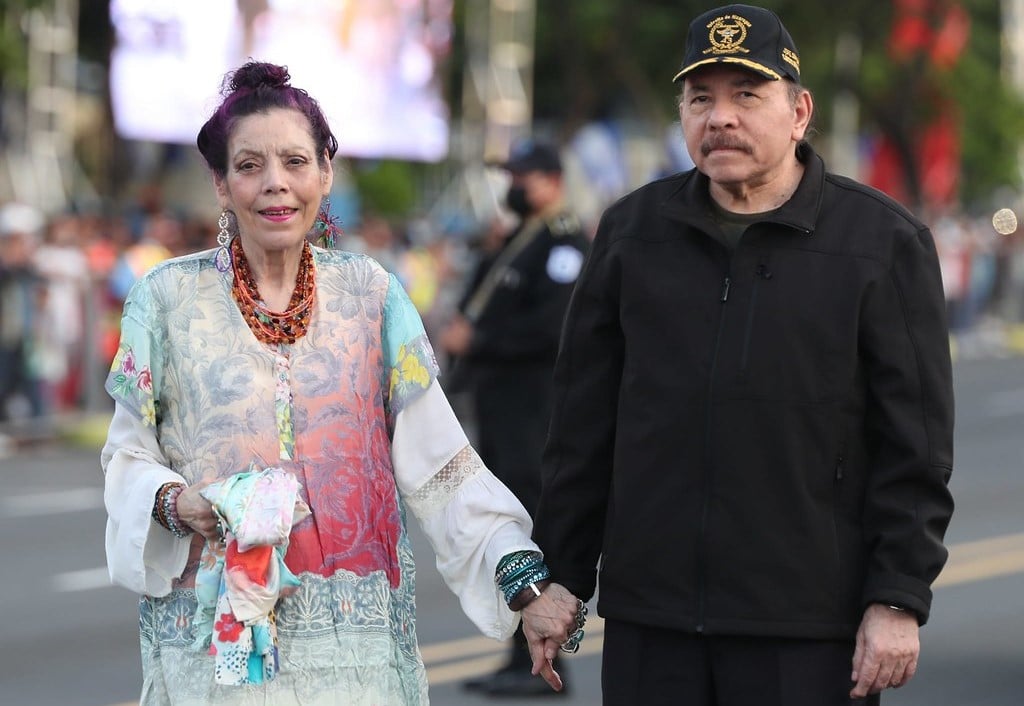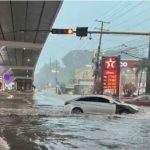The tension caused by the Daniel Ortega regime with the expulsion of the European Union ambassador in Nicaragua, the breaking of diplomatic relations with the Netherlands and the declaration of non grata by the United States ambassador are “isolating Nicaragua” even more, he warned. the former Foreign Minister Norman Caldera.
Despite Ortega’s hostile actions against the international community, Caldera does not foresee immediate consequences for the Central American country, beyond another statement regretting what happened.
“I have begun to collect the letters of lamentation of the OAS resolutions, the human rights of the resolutions of the United Nations and those of the European Union and I am making a wailing wall that the Jerusalem wall is doing. . But they do not pass from there, ”he said on the television program This weekbroadcast this Sunday, October 2.
We recommend: European Union rejects “hostile” expulsion of its ambassador and prepares “firm and proportionate response”
Nor does the former high-ranking official expect promising results from the OAS General Assembly, in which there is a draft resolution demanding once again the freedom of the 205 political prisoners in Nicaragua and proposing the creation of a high-level commission to that address the crisis of the Nicaraguan nation.
The unilateral actions of Daniel Ortega
Caldera was foreign minister under the administration of Enrique Bolaños, from 2002 to 2007, and appreciates that the insults uttered by Ortega in the last week have not properly generated a crisis, because to be one there should be two sides to the conflict and he only identifies a one-sided situation.
Last week, the Nicaraguan dictatorship attacked the representatives of the European Union and the United States who have denounced and sanctioned Nicaraguan officials, including Vice President Rosario Murillo, for human rights abuses since 2018 when thousands of citizens took to the streets to protest and were brutally repressed by the state.
Daniel Ortega then argued without evidence that he was the victim of an attempted coup, while approaching Russia, China, Iran, Venezuela and North Korea to avoid accountability for the abuses documented by the Inter-American Commission on Human Rights (IACHR) , attached to the OAS.
No expert was surprised by Ortega’s accusations to the Netherlands that he is interfering, after he refused to continue financing a hospital project in the caribbean due to the human rights situation.
Insulting ambassadors who are critical of the current regime is an old practice of its officials. “I remember how the normally arrogant Dutch were told ‘paisucho‘ (in 2009) and there was no reaction. If the day is taken out the day before, apparently they are not going to react, they are not going to regret it either!” Caldera told journalist Carlos Fernando Chamorro.
Also: The “diplomacy” of Daniel Ortega’s international isolation
Caldera referred in this way to that episode of insults in which former Vice Foreign Minister Manuel Coronel Kautz was the protagonist with his foul language. This time the Netherlands said in a statement that it was studying what the response would be with other countries of the European Union, while it described the breaking of diplomatic relations with Nicaragua as something “unusual and exceptional” and reaffirmed its commitment to democracy and human rights.
Insulted leaders choose to ignore insults
The leaders of other countries insulted by Daniel Ortega remained absolutely silent in the face of the tyrant’s virulent attack. Neither Chile, nor the United States nor the UN said anything about the dictator’s speech on September 28. In that intervention, he called the Chilean president Gabriel Boric “lap dog”, the Under Secretary of State for the Western Hemisphere Brian Nichols “bulldog”, and the Secretary General of the UN António Guterres “puppet of the Yankees”.
Also: Ortega attacks the president of Chile for demanding the release of political prisoners
He called the Catholic Church a “perfect dictatorship” and publicly questioned who had elected Pope Francis. “I don’t see it anywhere, but if his Holiness said there was a dialogue there must be somewhere”, he doubted.
The former foreign minister also spoke about the Ortega-Murillo regime’s rejection of the Ambassador Hugo Rodriguez, who was ratified by the United States Senate on Thursday, September 29.
According to Caldera, the withdrawal of the plácet de parte is a blow to the career of any diplomat, but the fact that he has received the support of the Biden Administration and the Senate shows that in his eyes he is someone who deserves the position, which vindicates, leaving Ortega’s rejection out of his file.
At the end of last July, Rodríguez was rejected for the first time by Ortega, after attending an appointment precisely at the Capitol, where he promised to work for the return of democracy to Nicaragua and the release of political prisoners.
Will Sullivan be left in office?
Caldera said he is not sure if the Americans are thinking of taking steps to downgrade the embassy in Managua, or if they are considering keeping the current representative, Ambassador Kevin Sullivan, in his post until relations can be normalized.
“It seems that the latter is the most possible and that the other alternative—which would be to declare Ambassador Francisco Campbell non grata—what they would do is have a substitute who may be less favorable, less appetizing, than Ambassador Campbell” , he speculated.
For the former head of Nicaraguan diplomacy, the objectives that Ortega is pursuing with this series of diplomatic decisions are not understandable and what could be said is that perhaps they want to imitate North Korea, which has remained without diplomatic ties with a large number of countries in the world.
In this sense, the Nicaraguan executive seems focused on its relations with Central America, managing to maintain financing with the Central American Bank for Economic Integration (CABEI), continue working with the Economic Integration System and with the Central American Economic Integration Secretariat (SIECA).
Caldera perceives that there is concern in the United States about the consequences that the economic restrictions that could be applied to Nicaragua could have, especially in the case of free zone companies. And that is known by the Ortega government.
“If exports and imports from free zones are closed, the US loses. Just as Nicaragua loses. It would be a bit like cutting off your nose to hurt your face,” she explained.

















